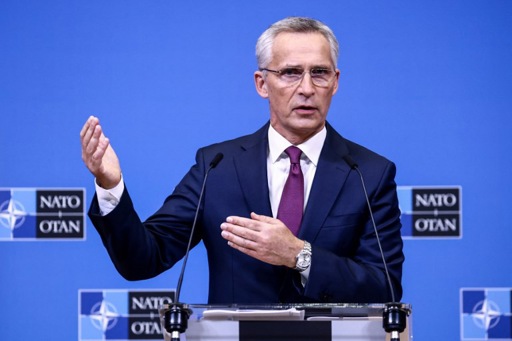NATO will help Sweden and Finland if the two countries are threatened in the process of joining the alliance, Secretary-General Jens Stoltenberg said on Thursday in Brussels.
”It is inconceivable that allies would not act should Sweden and Finland come under any form of pressure,” Stoltenberg said at a press conference with new Swedish Prime Minister Ulf Kristersson, who visited NATO's headquarters to discuss his country’s accession to the alliance.
Stoltenberg noted that the accession process for Sweden and Finland was the fastest in NATO’s modern history and praised Sweden’s efforts to convince Turkey to agree to their admission.
Sweden and neighbouring Finland submitted their applications to join NATO in mid-May in response to Russia’s invasion of Ukraine. Turkey initially blocked the process, alleging that Sweden and Finland support terrorist organisations.
Ankara had repeatedly accused both countries of supporting Kurdish militants, as well as the group of cleric Fetullah Gülen, which Turkey qualifies as terrorist organisations. Helsinki and Stockholm refuted these accusations, and in late June the three countries signed a memorandum of understanding on the issue.
In his government statement on Tuesday, the new Swedish Prime Minister said that, “The government will follow through resolutely on the three-party agreement between Sweden, Turkey and Finland both prior to NATO accession and as a member. Participation in terrorist organisations will be prohibited.” It is not clear if this implies that Sweden will accept Turkey’s definition of terrorist organisations.
Sweden and Finland can join NATO only if all 30 member States ratify their candidacies. Twenty-eight have already done so. Turkey and Hungary have not.
Kristersson has already signaled his willingness to travel to Ankara as soon as possible to discuss NATO accession.

